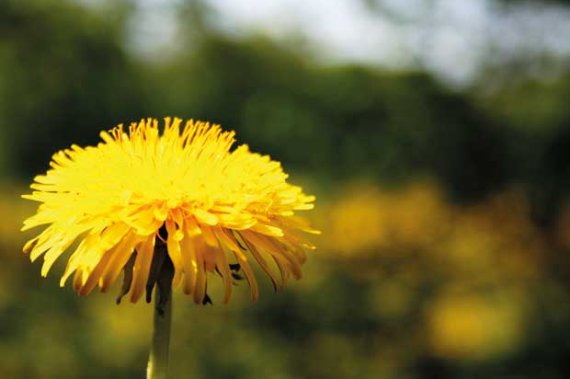The internet, cars, medicine, aeroplanes… Science has certainly delivered the goods. No wonder we have a great respect for scientific knowledge. Science has become an authority, taking the place of argumentation. Once something has been scientifically proven, that is the end of the discussion. Who would dare to argue with science? But as scientific knowledge has gained in authority, a striking development has emerged. Science has started to wield an influence in areas on which it never used to have any say at all. Scientific knowledge is brought into every discussion nowadays. Evolutionists loudly proclaim that the Bible cannot be true. In the opposite camp are the creationists, just as convinced and also armed with scientific evidence. Only they assert that there is proof of God’s existence. But what is science doing in this debate? What exactly is it getting involved in here?
Moved
Science is abstraction. It homes in on one aspect of reality. This aspect of reality is observed, recorded, coded, analysed and finally, conclusions are drawn about it. But at every stage along the way, information gets lost. For example: a biologist spots a dandelion on the side of the road. The sun shines on it and the petals are a gorgeous shade of yellow. Even though he has seen this plants many times before, its beauty really strikes him this time. He may even be rather moved by it. His grandfather loved dandelions. And the birds are singing so beautifully today. Science reduces this experience to a class, order, family, gender and the species name: Taraxacum officinale. The date and the coordinates may be recorded as well, and the observation is fed into a database with a tag. Prevalence and distribution: very general. As for the extraordinary beauty and the emotion accompanying the observations, no trace of them remains. So? What is the problem? That is science, isn’t it? Separating the observation from the human experience. Objective knowledge. Isn’t that what has delivered us all those lovely things over the years?
Slices of reality
I would like to emphasize at this point that I am not denouncing science and all its achievements. I would simply like to draw attention to the down sides that accompany the pursuit of science. Science is reductive, pursuing abstraction until only a tiny slice of the full reality is left. A useful sliver, certainly, because it can be used to very good ends. But if scientific knowledge is used to draw conclusions on all kinds of societal issues, a tension is generated. This is not surprising. Can small, abstract slices of information be used to draw conclusions about the whole picture? If you do this, you lose something. The light on the dandelion. The gorgeous green of its petals. They no longer count. There is a loss of meaning.
Holocaust
This brings me to the following quotation from the work of Austrian neurologist and psychiatrist Viktor E. Frankle: ‘It is not the avoidance of pain or the pursuit of pleasure that drives us, but rather our quest for meaning.’ Frankle survived the holocaust. And this quotation comes from the book he wrote about the life of an ordinary concentration camp prisoner from the point of view of a psychiatrist. Scientific knowledge is very useful. It has delivered us cars, medicines and aeroplanes. But it is also reductive, an abstraction of reality. And meaning gets lost in the process. For this reason we should handle science with care. After all, it is not the medicines and the pursuit of a pain-free life that drives us. It is not the joy of travelling by car or plane that drives us. It is meaning that drives us. ® Esther Brouwer
Jury: ‘Concise and snappy writin’
‘Overall we were not very impressed by the quality of the submissions. Not everyone kept to the assignment, which was to address the tensions between science and society. There were a few very nice historical accounts and some interesting parallels – between Pope Gregory and 17th century Dutch politician Johan de Witt, for example. There was also an entertaining essay in which a well-tended vegetable garden was taken as a symbol for the business approach of scientific companies.The best essay is one that ascribes the tensions between science and society to the inherent limitations of science. Esther Brouwer, the writer of this essay, got her teeth into her subject and communicated her message – that important meanings can get lost in a reductive, scientific approach – succinctly and readably. Her lovely example of the dandelion sticks in the reader’s mind: the sunlight, the yellow colour and the memory of Grandad are all reduced to a Latin name, a date and a coordinate. The writer’s use of the quotation from a concentration camp inmate is effective too: if it is meaning that keeps you going in an environment like that, it must be terrible to lose it.’
The jury: Rik Nijland (freelance journalist, including for the Volkskrant and Resource), Cees Leeuwis (Professor of Communication Science at Wageningen) and Gaby van Caulil (Editor-in-chief at Resource).
Why this prize?
Last November, Resource won the prize for the best media product in Dutch higher education: the Gouden Luis in de Pels (Golden Gadfly). The prize came with the sum of 500 euros. We could have blown the money of course, but we preferred to use it to promote things that matter to us: well-written journalism and lively debate on our website. So Resource offered 250 euros for the best piece of journalism on the theme of the tension between science and society. We also offered 250 euros for the sharpest debater on resource.wur.nl. After all, the value of a medium such as Resource lies not just in our journalistic output but also in the debate in engenders. So the person who makes the most valuable contribution to the reactions on the Resource website over the whole of 2012 will be rewarded at the end of the year with the Golden Troll.

